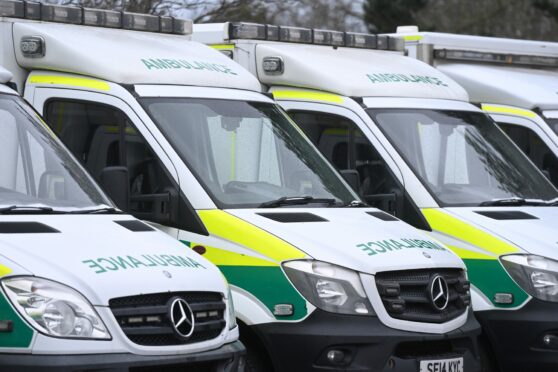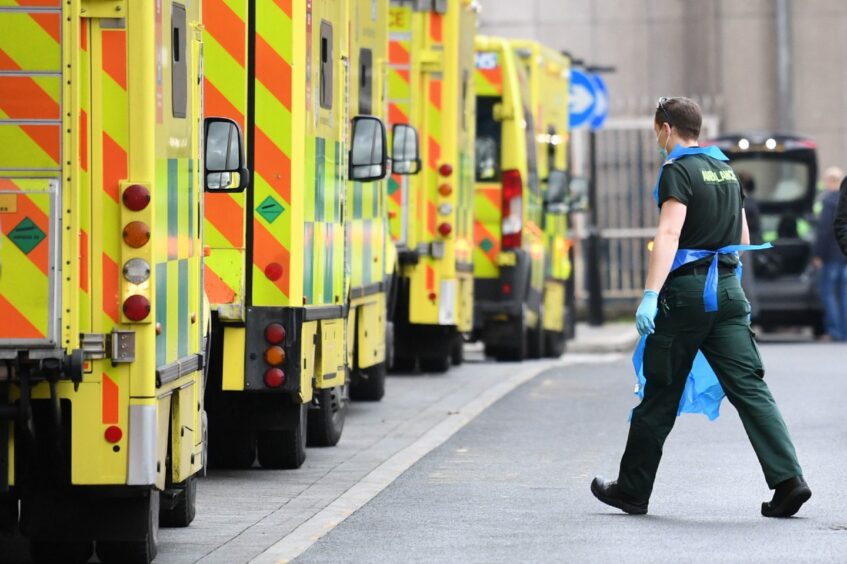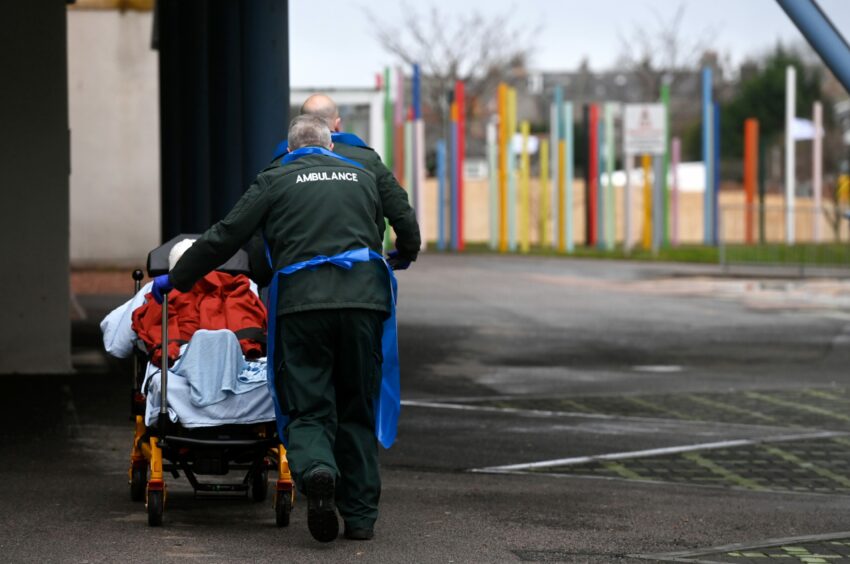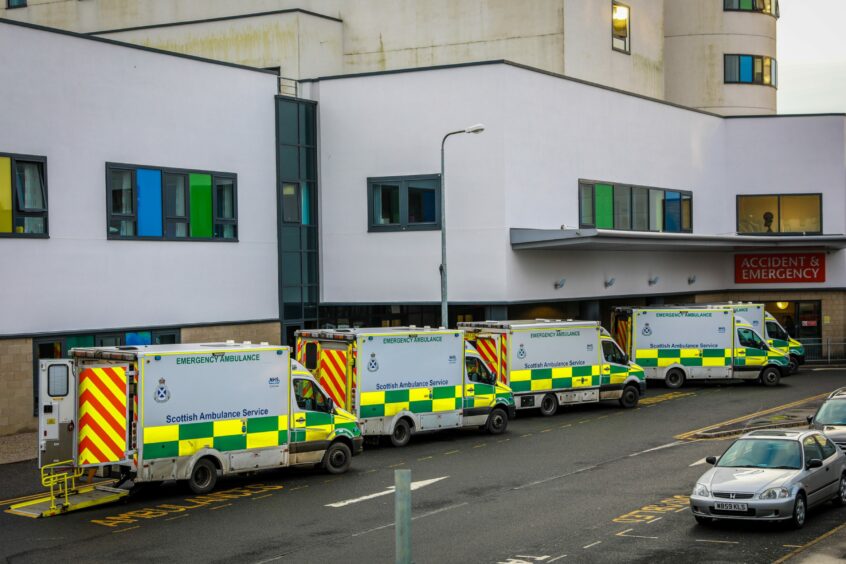Ambulances across Scotland will be staffed by only one trained medic and a driver under Covid contingency plans set out in a memo to staff this week.
The service has informed frontline staff of new operating procedures, which they say are necessary due to “extreme challenges” facing health services.
A memo seen by The Courier sets out how ambulance crews – normally staffed by two clinicians – would comprise of only one medic and a driver during expected staff shortages and times of high demand.
Staff will also only be given one break rather than two per shift in a bid to maximise resources, and these may have to be taken at hospitals instead of the ambulance station.
One paramedic said hardworking staff had been made to feel like they were “worth nothing” by bosses at the Scottish Ambulance Service.
Health service sources said they feared colleagues are at breaking point.
“It’s too much now,” they said.
“It’s not just been 18 months of coronavirus, we’ve been stretched for years and I don’t know how long people can go on like this,” one frontline paramedic said.
The “special bulletin” said the rapidly spreading Omicron Covid-19 variant has the potential to “overwhelm health services in Scotland”.
“The main concerns are the potential for significant staff abstractions, significant increases in demand and pressures in other parts of the health and care system create extreme challenges in [the Scottish Ambulance Service],” it reads.
It says the proposals have been agreed through the Scottish Government.
The changes, which would come into force if Covid-19 creates staff shortages, include splitting up medical crews to staff ambulances with a qualified clinician and a non-medically trained driver.
The memo says it may become necessary to put in place arrangements to “sustain essential services”.
But staff pointed out that emergencies require two clinical staff, with back-up from another crew often significantly delayed.
They also hit out at the plan to cut breaks to one per shift rather than two, with paramedics saying they are commonly left working without a break due to call volume currently.
David O’Connor, regional organiser with Unison, said they had asked ambulance service bosses to guarantee a timeframe when the first break could be taken, but this was refused.
Army drivers unable to use blue lights
One paramedic from Aberdeen, Kieran Whitford, took to social media to blast changes, saying staff had been made to feel worthless.
“To make matters worse, this single break will be taken after working incredibly hard as the only trained member of staff on the resource, with an increase in the use of non-clinically trained driving staff.
“I’m broken,” he said.
Plans raise ‘serious questions’ for patient safety
GMB Scotland organiser Karen Leonard said: “Management’s proposals will do more harm than good and GMB members will not support them.
“They will split and exacerbate already insufficient levels of skilled staff and unsustainable working time demands, and frankly pose serious questions for the health and safety of both staff and patients.
“After working in a state of fear for nearly two years, staff are angry and exhausted and it’s time ministers and management worked with them rather than against them.”
Responding to criticism, a Scottish Ambulance spokeswoman said the service required robust plans to protect services during extreme pressures and potential staff absence.
Plans ‘for short periods only’
The service said that “hopefully” the measures wouldn’t be needed and if introduced, it would be for a short period.
“The additional measures are for these times of extremis only and we’ve been engaging closely with trade unions in considering these options.
“Alongside patient safety, the welfare of our hardworking staff is our top priority and we are extremely aware of the current demands they are experiencing.
“Staff welfare is at the heart of these proposals and by offering one longer rest break, rather than two shorter periods, there is a greater opportunity to have staff rested during their shift.”
Scottish Conservative North East MSP Maurice Golden said the “alarming” plans would stretch limited resources even further.
“Our heroic ambulance crews are already overwhelmed and beyond breaking point.
Mr Golden added: “We all know ambulance waiting times are far too long but if this is a move designed to reduce them – it’s an unsafe one for clinicians and patients.
A Scottish Government spokeswoman highlighted an additional £20m in funding to increase ambulance capacity, as well as plans for 300 additional staff by April 2022.
“This investment comes from continued involvement with the SAS Demand and Capacity programme which this government has been involved in since its inception in 2019 which will increase ambulance service staffing by almost 300 by April 2022,” she said.




